Affiliate links on Android Authority may earn us a commission. Learn more.
Samsung Galaxy M20 review: Finally a credible threat to Xiaomi
Published onSeptember 2, 2019
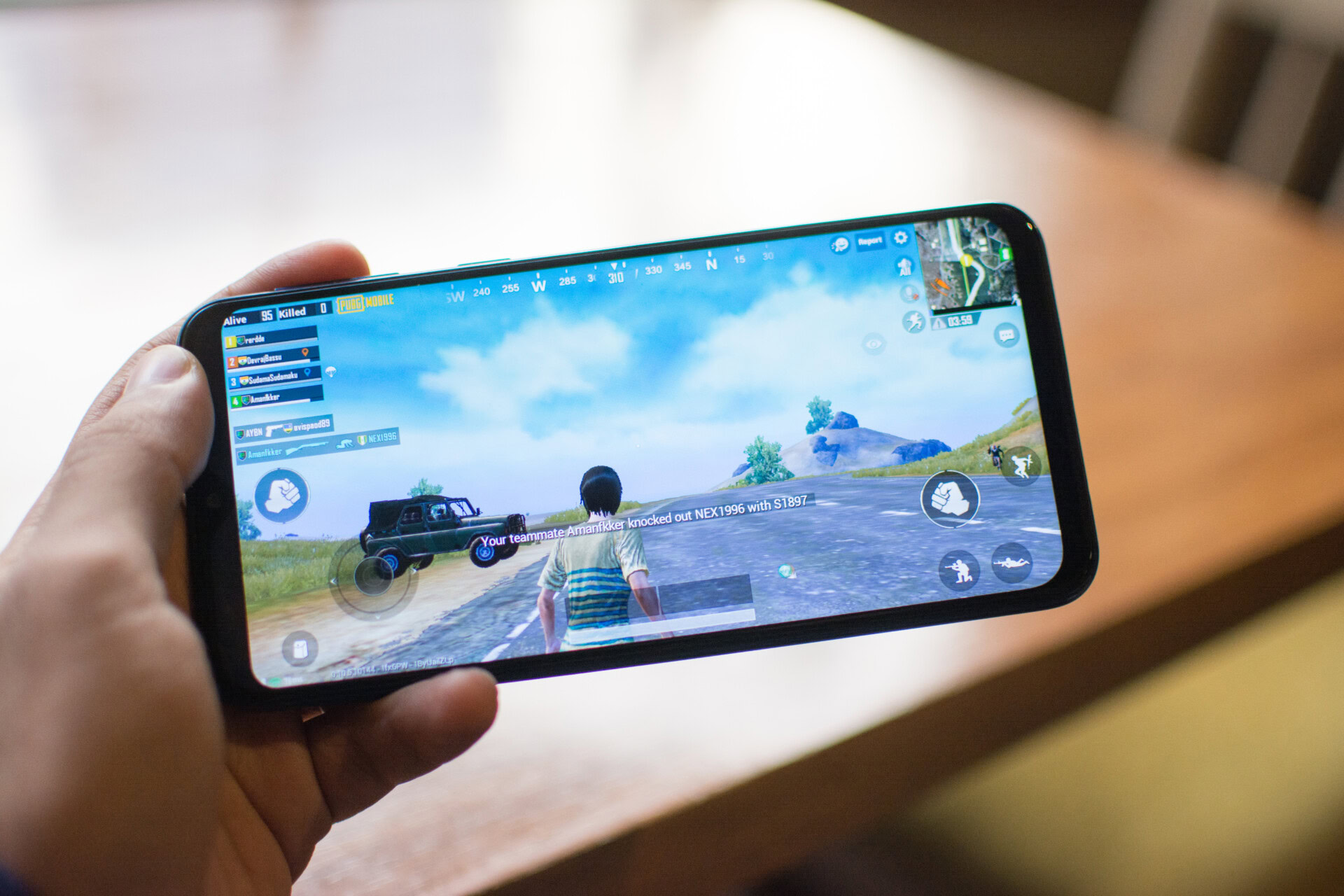
It’s taken Samsung a while but the new Galaxy M20 is the company’s answer to Xiaomi’s Redmi Note 7 and the HONOR 10 Lite. Presented as a one-two punch to entry, mid-level competition, the phone is part of Samsung’s new M series of smartphones that have been designed to cater to a younger audience. But do you think it might be too late for Samsung to reclaim the mid-range segment? Let’s find out in our Galaxy M20 review.
Samsung Galaxy M20 review: Design
- 156.4 x 74.5 x 8.8 mm
- 186g
- USB-C
Let’s start with the negatives. The Samsung Galaxy M20 doesn’t stray all that far from the company’s established design language. The back, in particular, is borderline drab looking and definitely doesn’t stand out the way Honor’s gradient finish does. The matte blue plastic with a glossy layer on top is reminiscent of the finish we’ve seen on several other Samsung phones and comes off as unoriginal. Add to that the fact that the back is a fingerprint and smudge magnet, you’ll probably want to get yourself a case sooner rather than later.
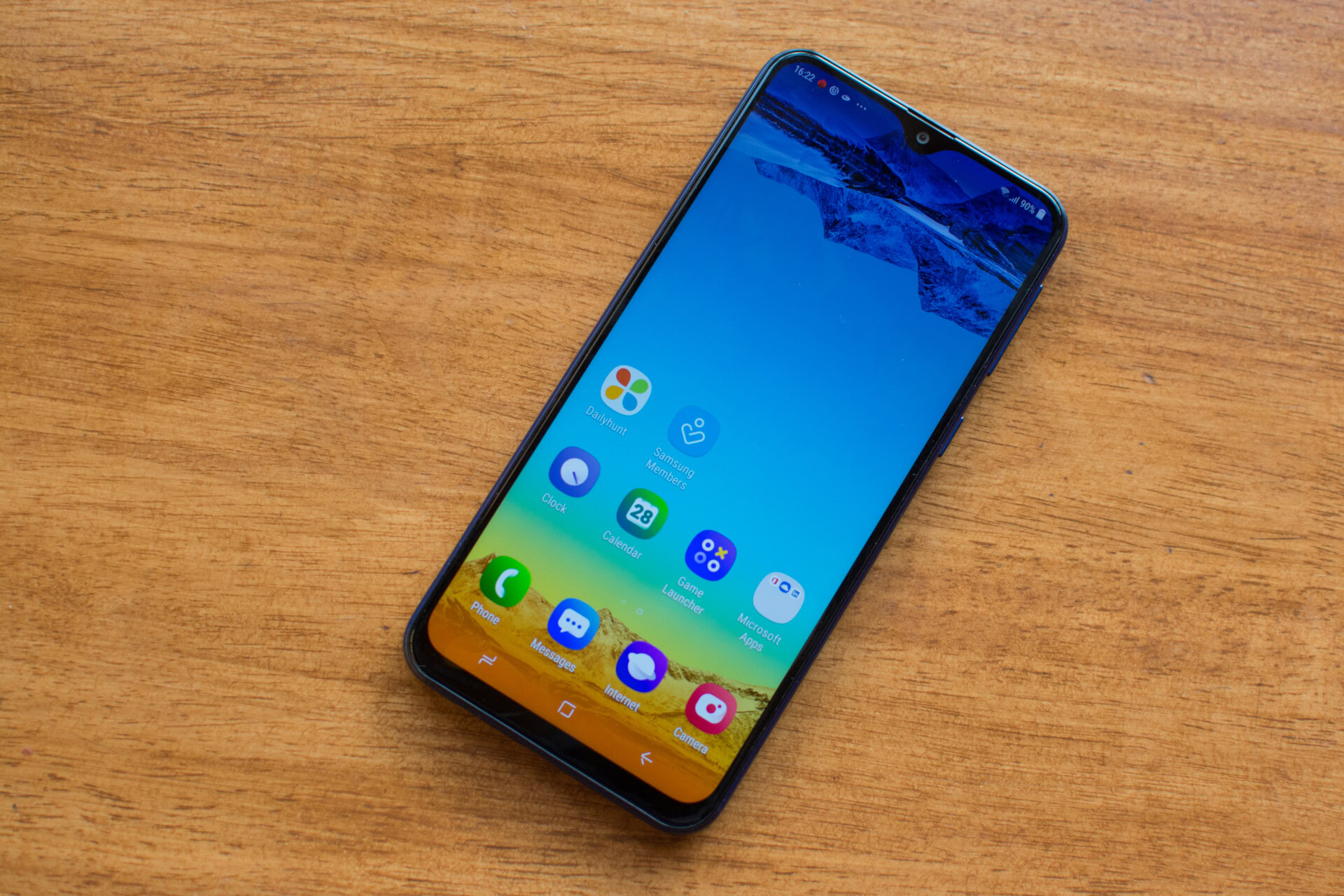
It’s not all bad though and, I really like the positioning of the fingerprint scanner as it falls exactly where my index finger touches the phone. The fingerprint reader is also every so slightly raised to make it easier to find.
The HONOR 10 Lite with its LTPS display panel has a smaller chin.
Flip the phone over and you’ll see where most of the work has been done. The Galaxy M20 uses an all-new ‘Infinity-V’ display that as you’d have guessed by now, has a V-shaped notch. The accompanying bezels too are fairly minimal, though we would have liked a smaller chin at the bottom. The HONOR 10 Lite with its LTPS display panel does this a bit better.
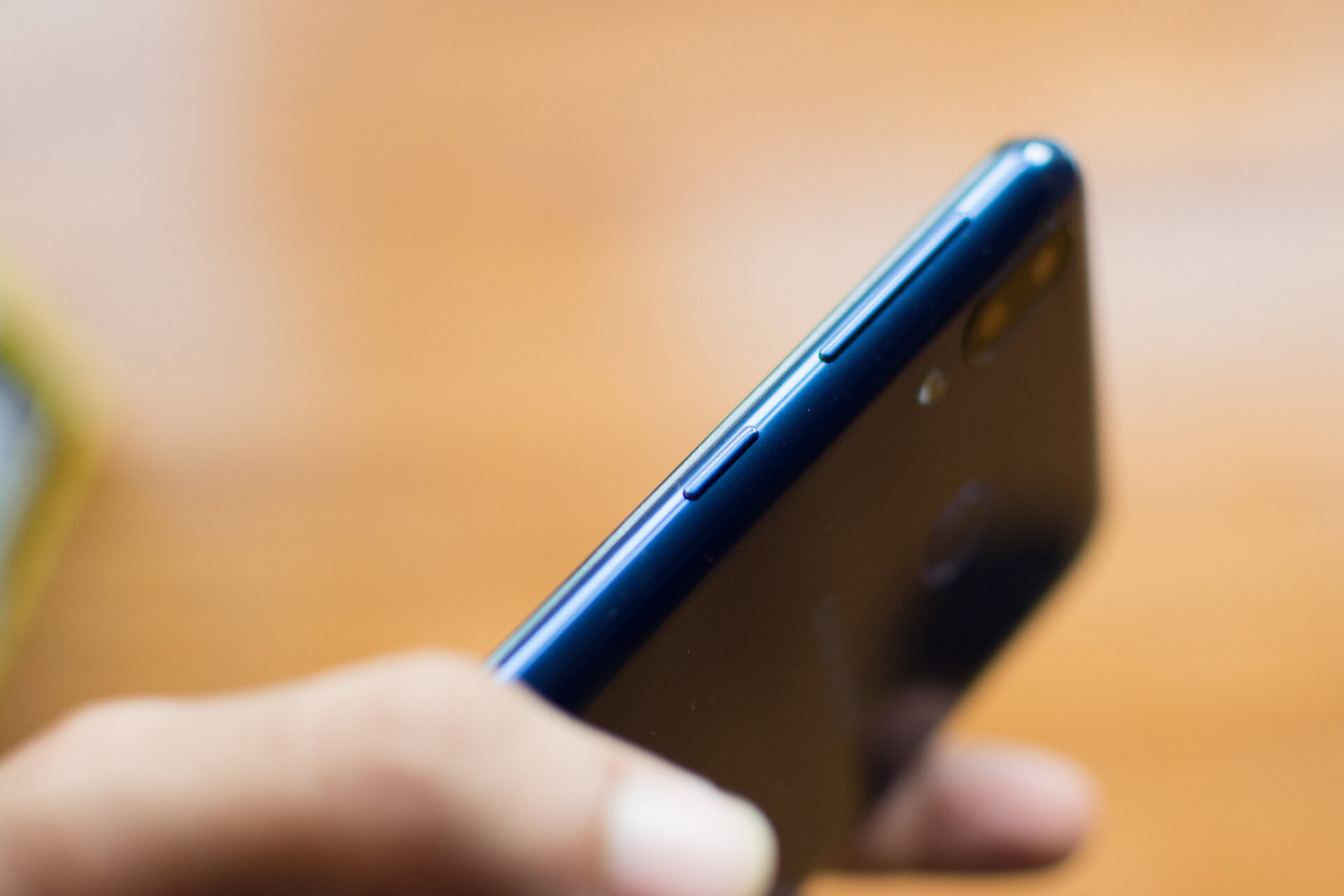
Over on the right side is the volume rocker and power button while the left side is where you’ll find the SIM card tray. Despite the large dimensions of the phone, I could comfortably reach out to the buttons. Samsung has nailed the feedback on the buttons and they have just the right amount of give.
The Galaxy M20 uses a Type C port which definitely puts it ahead of competing devices.
Unlike the Galaxy M10, the M20 makes use of a USB-C port along the bottom edge for charging and data transfer. While competing devices like the Redmi Note 6 and HONOR 10 Lite continue to make use of the older Micro-USB standard, it is great to see Samsung pushing the newer connector. You’ll also find a headphone jack. Another departure from the Galaxy M10 is the speaker grille which is now placed along the edge of the phone. The phone sounds reasonably loud and clear and audio does not get muffled when placed on a table. You might still, however, end up covering the speaker while holding the device in landscape mode.
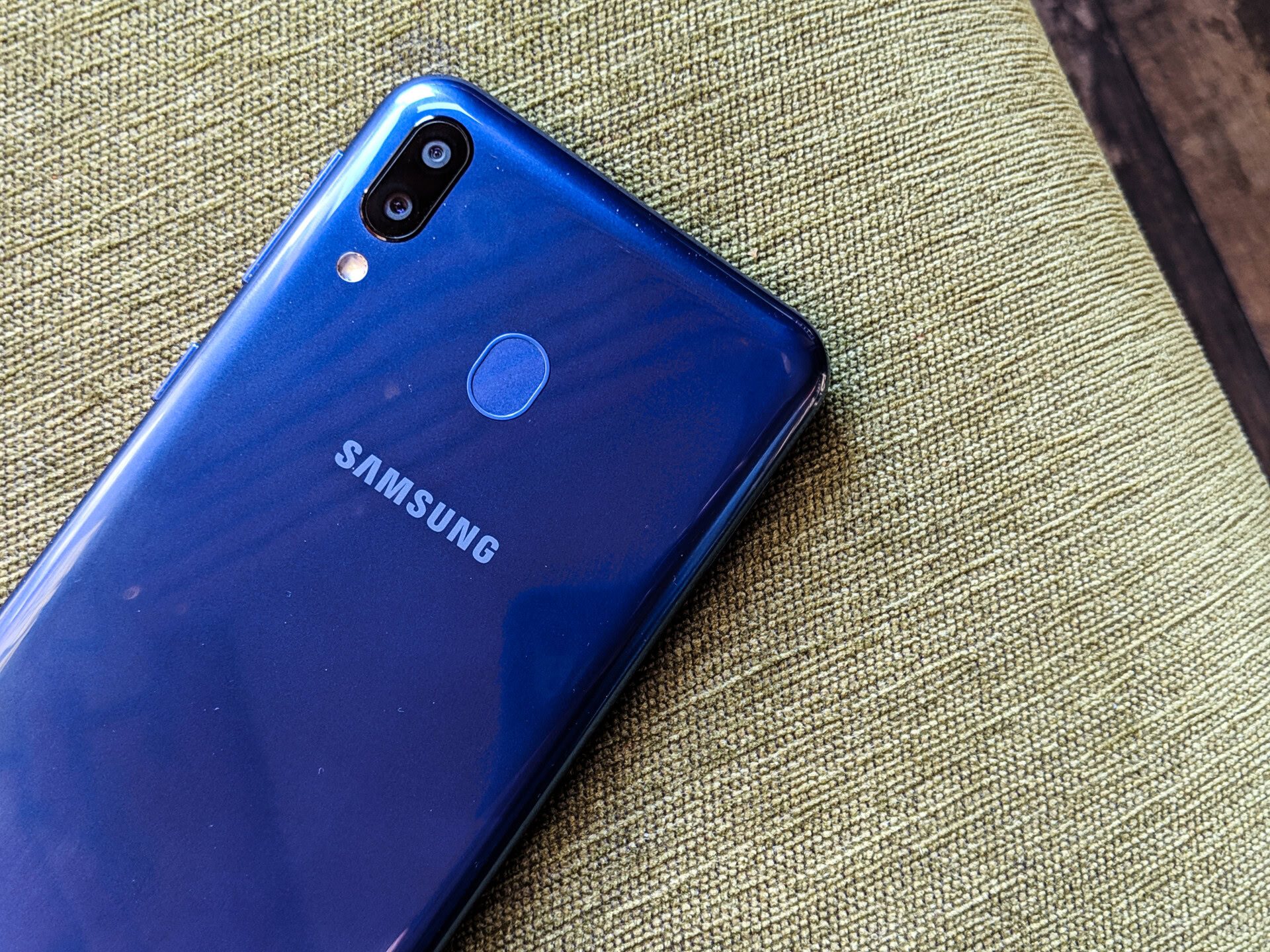
Overall, the Samsung Galaxy M20 is an interesting mix of modern design and some of the more traditional Samsung design elements. Fingerprints aside, the quality of plastics used is very good and the phone looks rugged enough to survive a fall or two.
Samsung Galaxy M20 review: Display
- 6.3-inch TFT display
- 2340 x 1080 pixels
- Waterdrop notch
- Dragontrail glass
The Galaxy M20 uses a large 6.3-inch display with a 19.5:9 aspect ratio. The taller ratio goes a long way in making the phone comfortable to hold. The screen resolution here is 2,340 x 1,080 pixels and the display looks absolutely sharp. While the water drop notch has helped increase the screen to body ratio by quite a bit, I do feel that Samsung could have done a bit more to reduce the size of the chin as it gets in the way of a truly immersive experience.
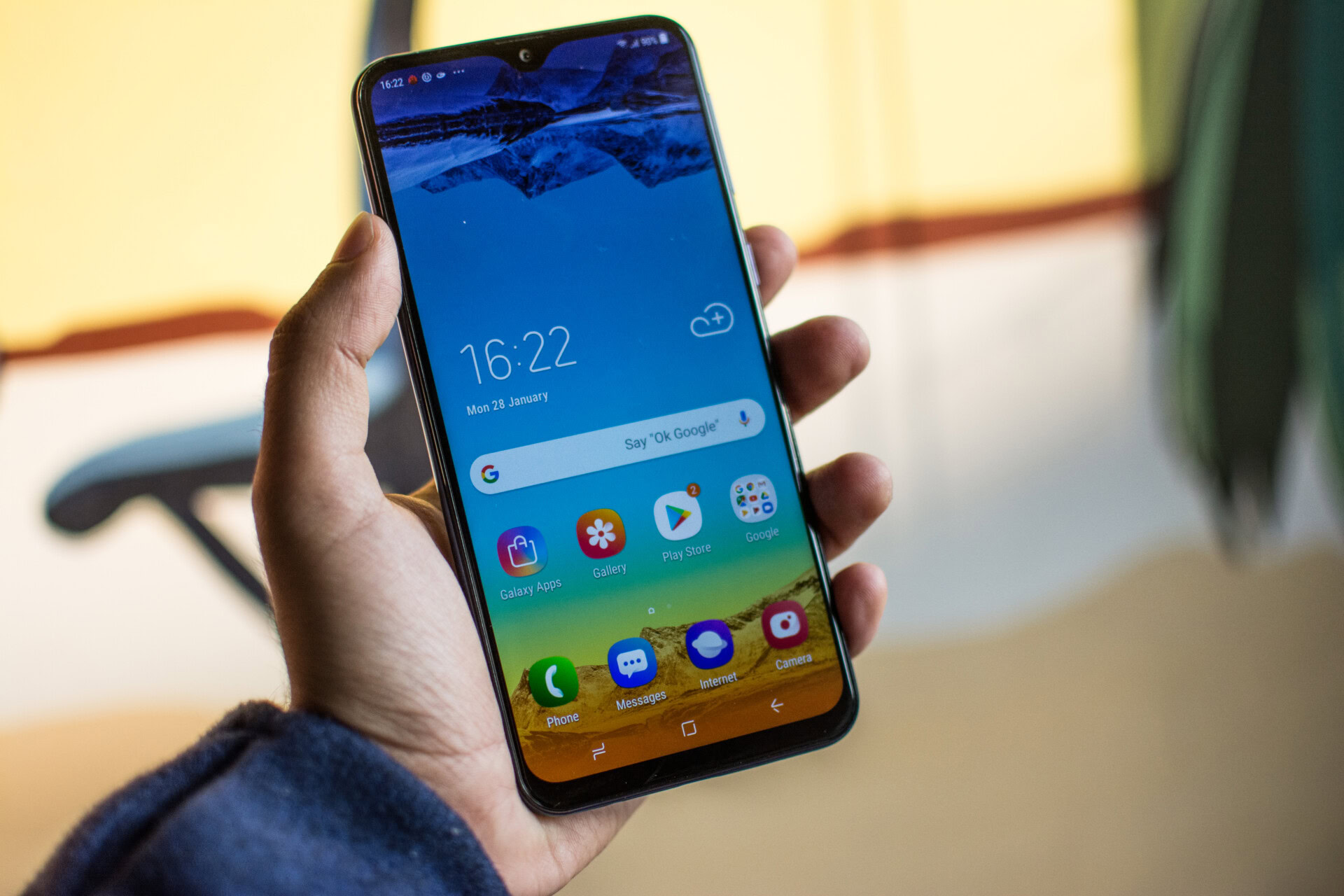
Moving on to overall screen brightness, the Infinity V panel is sufficiently bright even outdoors. I tried out the phone under a bright winter sun and despite the highly reflective panel, content continues to be easily visible. Samsung has used Asahi Dragontrail glass on the phone which should provide some semblance of drop protection. While the notch on the phone cannot be hidden away using a software setting, it is small enough to be unobtrusive.
Samsung Galaxy M20 review: Hardware
- Exynos 7904
- 4GB RAM / 64GB ROM
- microSD slot
- Dual SIM
The Samsung Galaxy M20 is powered by the Exynos 7904 chipset. Built on a 14-nanometer process, the chipset uses a combination of two Cortex A73 cores clocked at 1.8GHz, paired with six Cortex A53 cores clocked at 1.6GHz. Those two Cortex A73 cores make all the difference in day to day use. The phone also has up to 4GB of RAM, which should definitely assist in multitasking.
We’ve got the 64GB variant of the phone here with us, and out of the box, about 51GB is available to users. The storage can be expanded further. In fact, the phone offers dual nano-SIM card slots, as well as a dedicated microSD card slot so that you don’t have to lose out on storage expansion capabilities while using both SIM slots. The phone supports dual VoLTE as well.
Samsung Galaxy M20 review: Performance
Samsung has done a great job eking out the maximum out of the Exynos 7904 chip on the Galaxy M20. Performance is for the most part pretty good. Other than a stray frame drop or two, the interface was generally remarkably fluid. For everyday use, the phone’s performance is more than adequate.
Our review variant with 4GB of RAM onboard was well optimized to the point where we never really felt limited by the amount of RAM. The phone did not exhibit aggressive memory management and we could easily jump between apps. The phone held PUBG in memory while we went around using the browser and shuffled between playlists on Spotify.

Moving on to gaming capabilities. The Exynos 7904 has a Mali G71 MP2 GPU which is pretty competent for this category. Unlike the similarly priced HONOR 10 Lite, the phone does quite well at games like PUBG. The phone defaults to the medium quality setting and more or less holds a solid 30FPS. There were a few frame drops but overall, the gaming experience is very decent.
The Galaxy M20 also does really well with network performance. In an area with a really poor cellular network, yet the phone still did an above average job at latching on to the network and calls drops were far and few. Call quality itself is very good.
Samsung Galaxy M20 review: Software
- Android 8.1.0
- Samsung Experience 9.5
Running Samsung Experience 9.5 on top of Android 8.1.0, the entire software package is very well optimized for the hardware. The entire experience is as smooth as it gets and other than a stray frame drop or two, it never really lagged or slowed down in any noticeable fashion.
There are a whole bunch of customization settings available to power users and while the default layout should be familiar to long term Samsung users, it is a cinch to personalize the entire interface. I wasn’t a fan of the magazine style lock screen stories that is turned out by default. The idea here is to display relevant news articles and content on the lock screen everytime you turn it on. Thankfully, it is easy to switch off.
The default layout makes use of a secondary app drawer but you can easily switch that over to an iOS-style layout where all apps are laid out in a grid-like pattern. I also really liked Samsung’s implementation of gestures in the interface. While by default, the phone has a row of navigation keys at the bottom, a quick trip into the settings menu lets you switch on gestures. Intuitive and customizable, they really help make the entire experience a lot more immersive.
Preinstalled apps on the Galaxy M20 are quite limited and outside of a few utilities, a news app by Dailyhunt, Office Mobile, OneDrive and LinkedIn were the only ones that stood out. Most of these cannot be uninstalled.
Samsung has paid a lot of attention to simpler detail like animations for face recognition.
While the phone has a fingerprint reader at the back, it also supports facial-recognition-based unlocking. This works reasonably well in good ambient light but is no match for the fingerprint reader which we found to be remarkably quick. Smaller tidbits like the animation around the notch when the phone is trying to recognize your face are cool to see and show attention to detail.
Samsung Galaxy M20 review: Camera
- 13MP, f/1.9 primary camera
- 5MP ultrawide camera
The Galaxy M20, like the Galaxy M10, sports a combination of a 13MP primary sensor and a f/1.9 aperture at the back along with a 5MP ultrawide camera. The secondary camera has a 120-degree field of view, which is great for capturing larger buildings or a big group of people in a single frame.
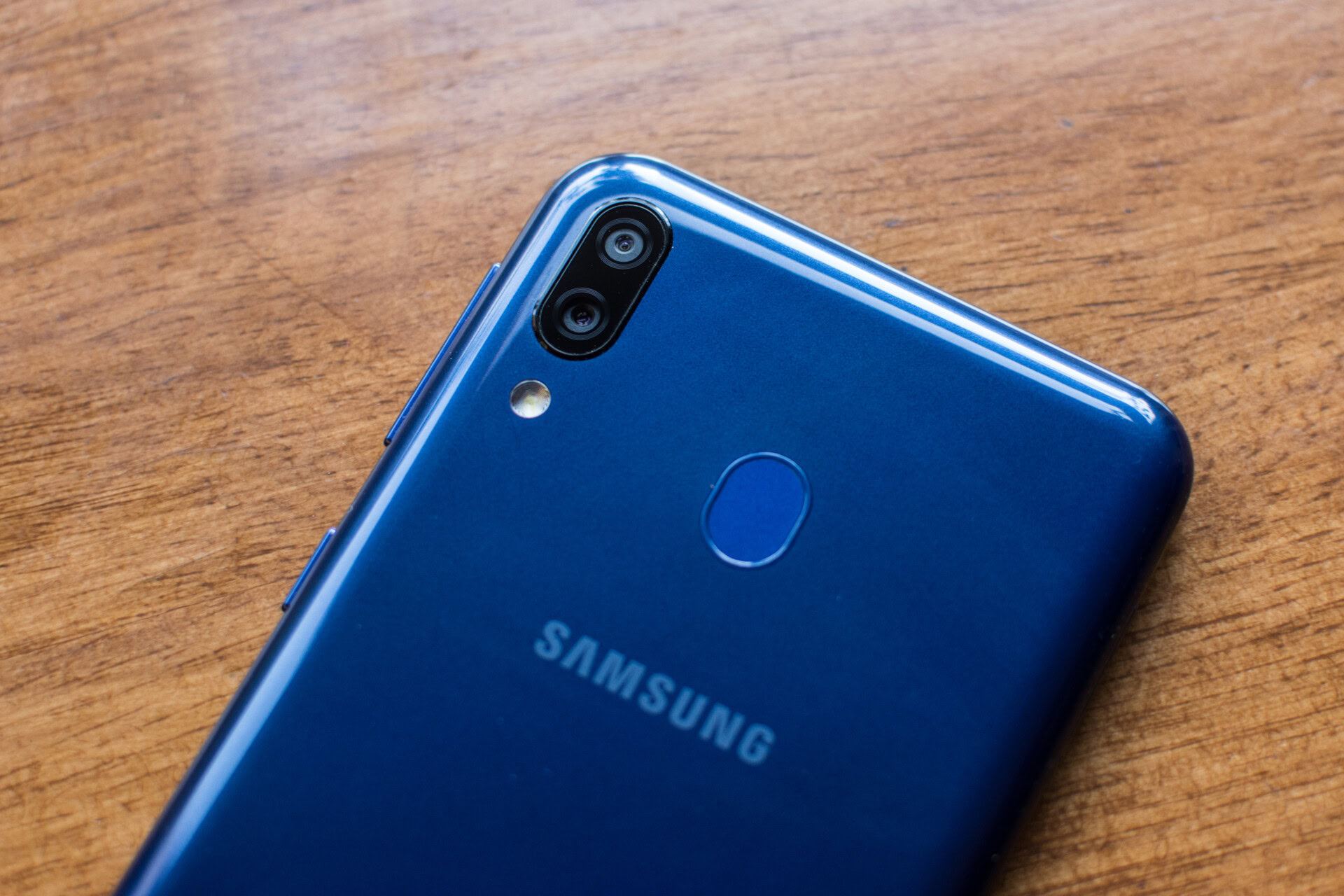
The camera on the Galaxy M20 is a bit of a mixed bag. In adequate ambient light, the phone manages to capture good looking images with a decent amount of detail. However, there’s something off with the way the phone manages white balance. Images can at times look just a bit overexposed with unnatural colours.

The wide-angle camera is a nifty addition, though, once again a higher resolution sensor would’ve been ideal. The limited dynamic range of the primary camera extends to and is perhaps a bit more evident in the ultrawide camera. The phone has a tough time dealing with highlights.
Meanwhile, low-light performance is rather disappointing. Images generally have a lot of noise and the aggressive noise reduction further smudges details. Zooming in to the image reveals digital noise in the form of splotches. Samsung definitely went overboard here.
Samsung Galaxy M20 review: Battery
- 5,000mAh battery
- Fast charging support
Pure hardware aside, Samsung has done a phenomenal job at optimizing the Galaxy M20 for better battery life. The 5,000mAh cell lasts forever and on an average, the phone lasted two days of use for me. Now, your use case may vary, but with multiple social media apps, Reddit, emails and more, I could still consistently get almost eight hours of screen on time. With a video loop test, the phone managed 20 hours before shutting down.
Samsung has done a phenomenal job at optimizing the Galaxy M20 for better battery life.
You’d expect a phone with a 5,000mAh battery to take forever to charge. However, the phone supports fast charging over the USB-C port and takes just about 2 hours 15 minutes to get fully charged from scratch using the in-box charger.
Samsung Galaxy M20 in the news
Why should you buy the Galaxy M20?
I think Samsung has finally managed to build a phone that ticks almost all the checkmarks that a young smartphone buyer is looking for. Be it the absolutely fantastic battery life, the vibrant display or the satisfactory performance, the Galaxy M20 is still a fairly decent option for smartphone buyers.
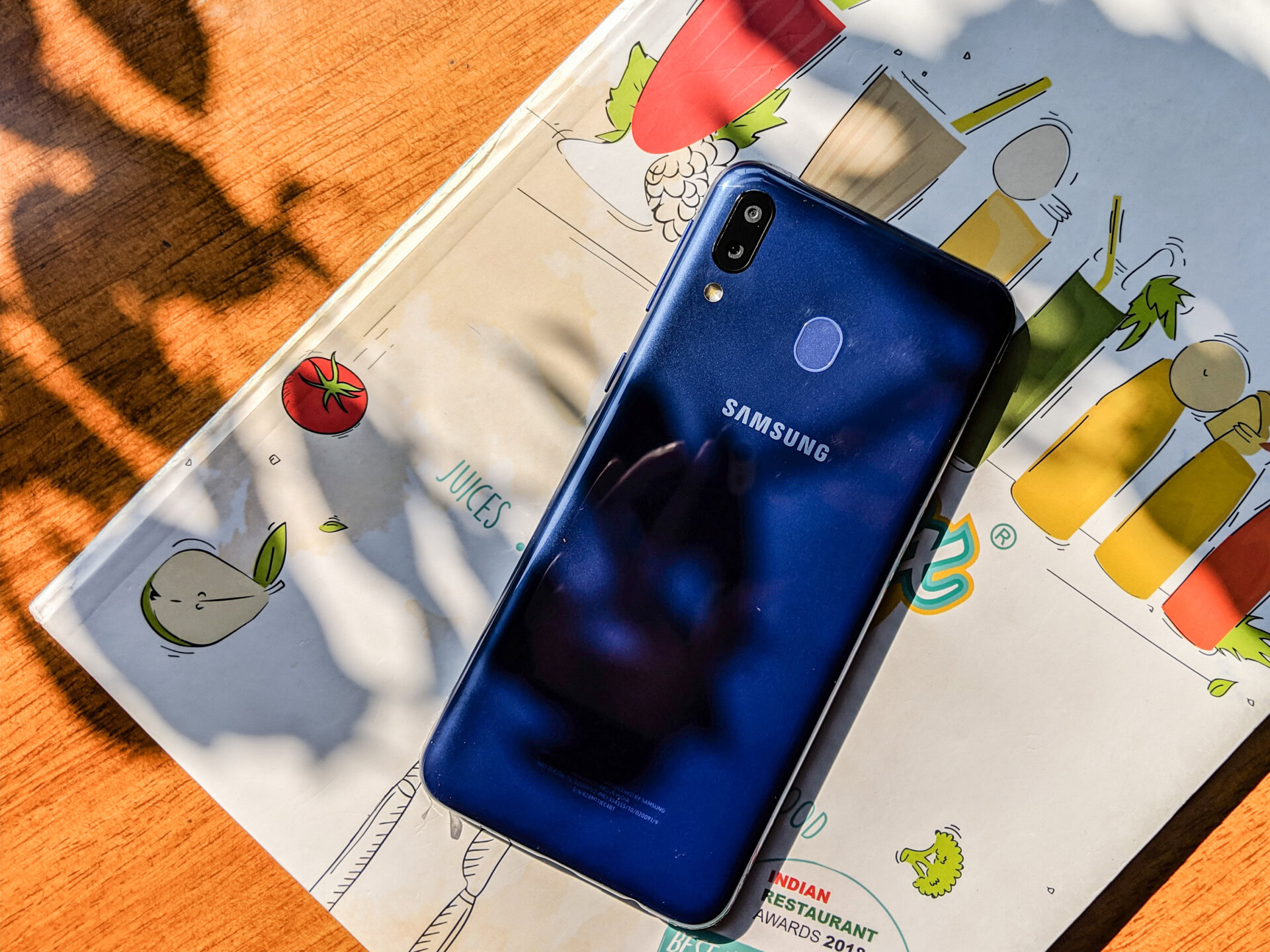
Since the launch of the Galaxy M20, there have been several new competitors in the entry-level category. Xiaomi’s Redmi Note 7 series and the realme 3 come across as solid options for anyone looking to buy a new phone under 10,000 rupees. It is now possible to get phones like the Redmi Note 7S that can deliver excellent imaging capabilities in the same price range. The realme 3i is another interesting option that delivers fantastic battery life and a fresh design.
The realme 5 is yet another smartphone that delivers the goods and offers a brilliant price to performance ratio.
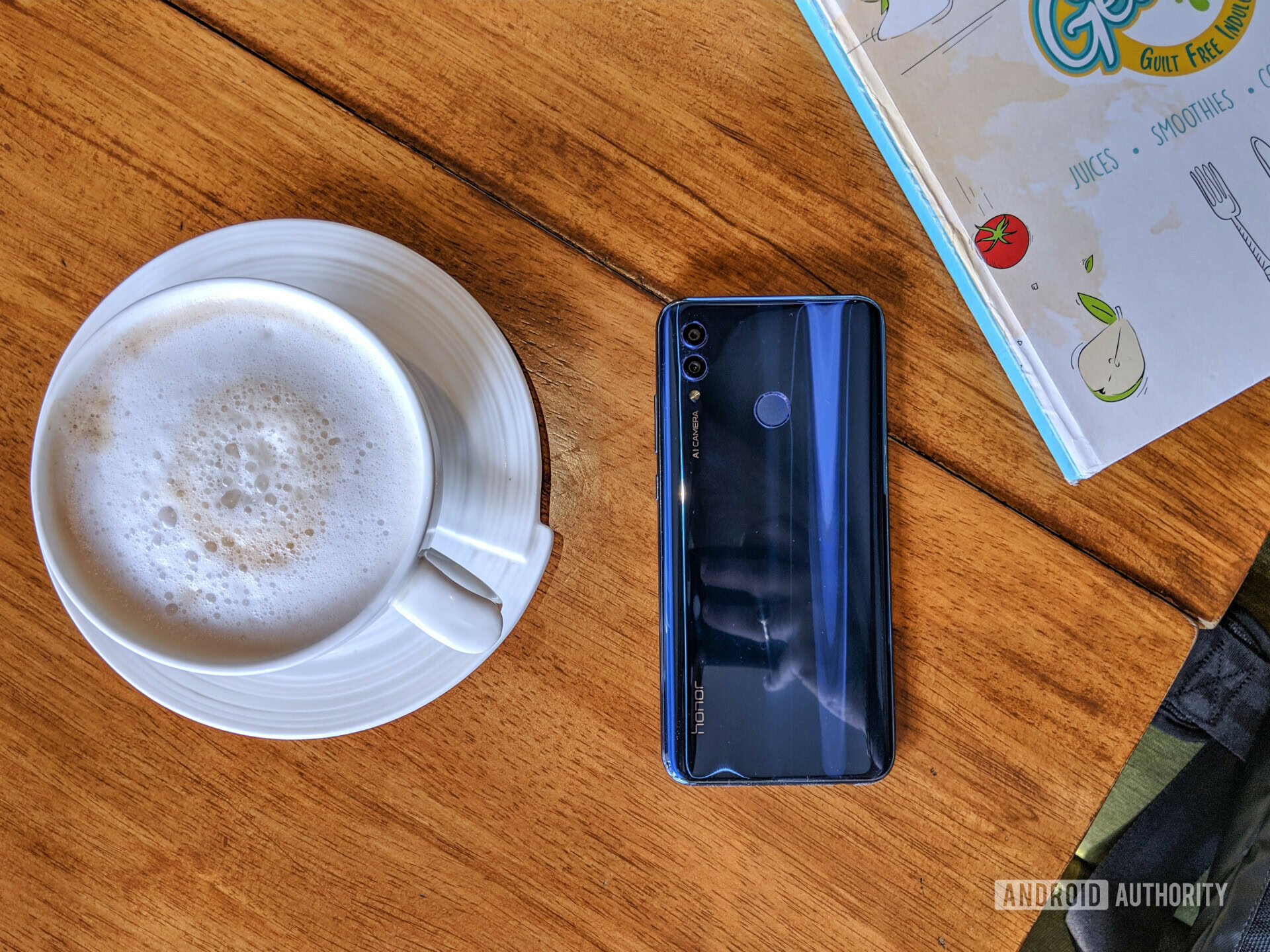
Priced at 10,990 rupees (~$150) for the base variant with 3GB of RAM and 12,990 rupees (~$180) for the 4GB RAM and 64GB storage version, the Galaxy M20 is no longer quite the value that it was at launch, but it is still a decent option in the sub 15,000 rupees (~$220) segment.
That’s it for our Samsung Galaxy M20 review! What do you think about Samsung’s M series of phones? Let us know in the comments section!